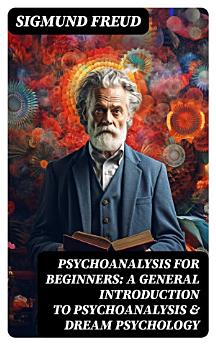PSYCHOANALYSIS FOR BEGINNERS: A General Introduction to Psychoanalysis & Dream Psychology
Des 2023 · DigiCat
Kitabu pepe
160
Kurasa
family_home
Kimetimiza masharti
info
reportUkadiriaji na maoni hayajahakikishwa Pata Maelezo Zaidi
Kuhusu kitabu pepe hiki
In "Psychoanalysis for Beginners: A General Introduction to Psychoanalysis & Dream Psychology," Sigmund Freud lays the foundational principles of his revolutionary psychological theories, exploring the intricate workings of the unconscious mind, the significance of dreams, and the human psyche's inherent conflicts. Written in an accessible style, this introductory text demystifies complex concepts while situating them within the broader context of early 20th-century psychology. Freud employs vivid case studies and clear explanations, articulating the mechanisms of repression, transference, and the interpretation of dreams as pathways to understanding human behavior and emotions. Sigmund Freud, an Austrian neurologist and the father of psychoanalysis, developed his theories against the backdrop of a rapidly changing European intellectual landscape. His background in neurology and his fascination with the human mind propelled him to explore phenomena that traditional psychology could not adequately address. Freud's work emerged from his experiences with patients suffering from neuroses, leading him to propose that underlying psychological issues are often rooted in unresolved conflicts from childhood—a concept that would shape modern psychological thought. "Psychoanalysis for Beginners" is an essential read for anyone interested in understanding the complexities of the human mind. Freud's masterful blend of scholarly insight and relatable examples makes this work not only informative but an engaging journey into the hearts and minds of individuals. Readers will gain an invaluable perspective on the foundational ideas that heavily influenced psychology, literature, and the arts throughout the 20th century.
Kuhusu mwandishi
Sigmund Freud, born on May 6, 1856, in Freiberg, then part of the Austro-Hungarian Empire and now Příbor, Czech Republic, is hailed as the father of psychoanalysis. Freud's revolutionary thinking on the workings of the human psyche reshaped the field of psychology and left an indelible mark on the wider cultural landscape (Gay, 1988). Freud's work often focused on the unconscious mind and sought to understand the influence it has on human behavior and development. His theories on the Oedipus complex, defense mechanisms, and libido were groundbreaking, although they also provoked controversy and debate. Among Freud's extensive literary corpus, 'A General Introduction to Psychoanalysis' and 'Dream Psychology' exemplify his endeavors to make his complex theories accessible to a broader audience (Freud, 1920). 'Psychoanalysis for Beginners' consolidates fundamental Freudian concepts, delivering a comprehensive overview of psychoanalytic theory. Freud's literary style combines meticulous analysis with engaging prose, reflecting his dedication to explicating the intricacies of the mind to both professional colleagues and the general public. Freud passed away on September 23, 1939, in London, but his legacy persists, influencing disciplines ranging from psychology to literature, and continuing to provoke thought and analysis in the realms of the human condition.
Kadiria kitabu pepe hiki
Tupe maoni yako.
Kusoma maelezo
Simu mahiri na kompyuta vibao
Sakinisha programu ya Vitabu vya Google Play kwa ajili ya Android na iPad au iPhone. Itasawazishwa kiotomatiki kwenye akaunti yako na kukuruhusu usome vitabu mtandaoni au nje ya mtandao popote ulipo.
Kompyuta za kupakata na kompyuta
Unaweza kusikiliza vitabu vilivyonunuliwa kwenye Google Play wakati unatumia kivinjari cha kompyuta yako.
Visomaji pepe na vifaa vingine
Ili usome kwenye vifaa vya wino pepe kama vile visomaji vya vitabu pepe vya Kobo, utahitaji kupakua faili kisha ulihamishie kwenye kifaa chako. Fuatilia maagizo ya kina ya Kituo cha Usaidizi ili uhamishe faili kwenye visomaji vya vitabu pepe vinavyotumika.








